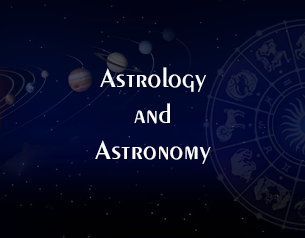Astrology and astronomy were archaically treated together and were only gradually separated in Western 17th-century philosophy with the rejection of astrology. During the later part of the medieval period, astronomy was treated as the foundation upon which astrology could operate.
Since the 18th century, they have come to be regarded as completely separate disciplines. Astronomy, the study of objects and phenomena originating beyond the Earth's atmosphere, is a science and is a widely studied academic discipline. Astrology, which uses the apparent positions of celestial objects as the basis for the prediction of future events, is a form of divination and a pseudoscience having no scientific validity.
Astrology was widely accepted in medieval Europe as astrological texts from Hellenistic and Arabic astrologers were translated into Latin. In the late Middle Ages, its acceptance or rejection often depended on its reception in the royal courts of Europe. Not until the time of Francis Bacon was astrology rejected as a part of scholastic metaphysics rather than empirical observation. A more definitive split between astrology and astronomy in the West took place gradually in the seventeenth and eighteenth centuries when astrology was increasingly thought of as an occult science or superstition by the intellectual elite. Because of their lengthy shared history, it sometimes happens that the two are confused with one another even today. Many contemporary astrologers, however, do not claim that astrology is a science but think of it as a form of divination like the I-Ching, an art, or a part of a spiritual belief structure.
Distinguishing characteristics
The primary goal of astronomy is to understand the physics of the universe. Astrologers use astronomical calculations for the positions of celestial bodies along the ecliptic and attempt to correlate celestial events with earthly events and human affairs. Astronomers consistently use the scientific method, naturalistic presuppositions, and abstract mathematical reasoning to investigate or explain phenomena in the universe. Astrologers use mystical or religious reasoning as well as traditional folklore, symbolism, and superstition blended with mathematical predictions to explain phenomena in the universe. The scientific method is not consistently used by astrologers.
Both astrologers and astronomers see Earth as being an integral part of the universe, that Earth and the universe are interconnected as one cosmos. However, astrologers philosophically and mystically portray the cosmos as having a supernatural, metaphysical and divine essence that actively influences world events and the personal lives of people. Astronomers, as members of the scientific community, cannot use in their scientific articles explanations that are not derived from empirically reproducible conditions, irrespective of their personal convictions.
Historical divergence
Astronomy and astrology diverged over the course of the 17th through 19th centuries. Copernicus didn't practice astrology, but the most important astronomers before Isaac Newton were astrologers by profession – Tycho Brahe, Johannes Kepler, and Galileo Galilei.
Also relevant here was the development of better timekeeping instruments, initially for aid in navigation, improved timekeeping made it possible to make more exact astrological predictions that could be tested, and which consistently proved to be false. By the end of the 18th century, astronomy was one of the major sciences of the Enlightenment model, using the recently codified scientific method, and was altogether distinct from astrology.
Astrology And Astronomy
SystemAdmin GiriAustralia









